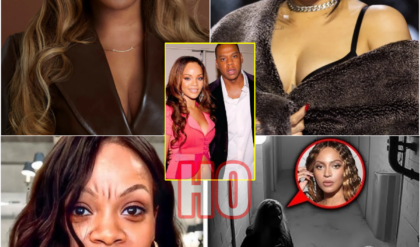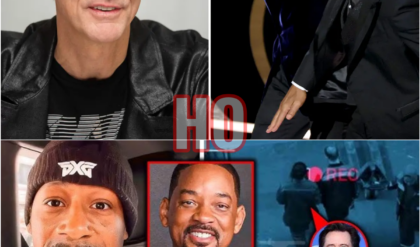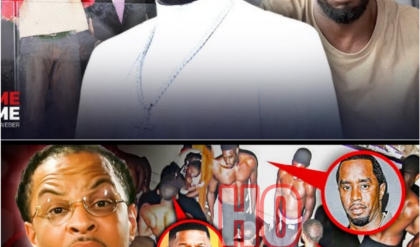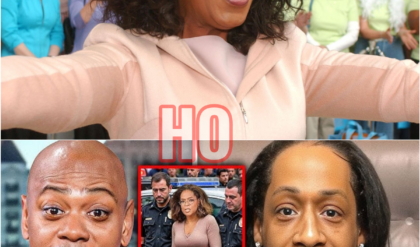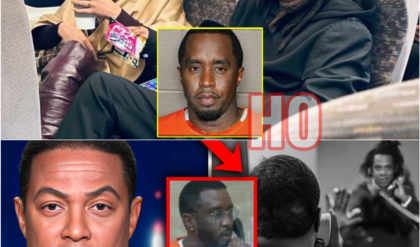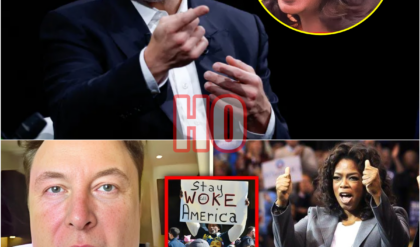Jaguar Wright tells Piers Morgan that Jay-Z is just as much a ‘monster’ as Diddy | HO
Piers Morgan is joined by R&B singer Jaguar Wright who spoke about the indictment against Sean ‘Diddy’ Combs and her views on Jay-Z.

In a recent explosive interview with Piers Morgan, Jaguar Wright didn’t mince words when she labeled Jay-Z as much of a “monster” as Diddy in a discussion about the pervasive corruption and abuse within the entertainment industry. The singer, who has been a part of the music industry for over 30 years, has become known for her incendiary claims about the dark underbelly of the music world, particularly its biggest stars like Sean “Diddy” Combs and Jay-Z.
Wright’s remarks about Jay-Z focused heavily on his notable silence in light of the sexual abuse and criminal enterprise charges that have been leveled against Diddy. Since these allegations surfaced, many have questioned why Jay-Z, an iconic figure in the same industry and closely linked to Diddy, has not made any public comments on the matter.
Wright offers a scathing explanation for his silence: “That’s what he does. He starts little fires everywhere, forces everyone involved to go and carry water while he sneaks away without a response.” According to Wright, Jay-Z has historically employed a strategy of deflection and avoidance, allowing others to bear the brunt of controversy while he maintains a strategically silent distance. This, she asserts, is no longer an option: “Sean, you must respond. You have no choice.”
The heart of Wright’s accusations is that both Jay-Z and Diddy have orchestrated and profited from a “victim-making machine” that has perpetuated abuse within the music industry for decades. Wright compares Jay-Z to disgraced figures like Harvey Weinstein, Jeffrey Epstein, and R. Kelly, all of whom are connected to similar accusations of systematic exploitation and abuse. She underscores that these individuals, including Diddy and Jay-Z, have been able to avoid scrutiny for so long because of their immense power and influence.
What’s even more chilling in her claims is that Wright insists these men are connected professionally and privately, stating that, like Weinstein and Epstein, they’ve used their networks to cover up illegal activities. “They all have one person in common: Sean Carter,” Wright says, drawing a direct line between Jay-Z and some of the most notorious abusers of modern times.
This alleged “fist of tyranny”, as Wright calls it, has, according to her, been punching its way through both society and the culture of the music industry, specifically targeting and exploiting women for years. She insists that these cycles of abuse have been carefully orchestrated, controlled, and concealed by men like Jay-Z, who she believes have used their power to protect one another.
For Jaguar Wright, Jay-Z’s silence on Diddy’s legal troubles is not surprising, but it is telling. She suggests that his avoidance is not out of loyalty or friendship but rather an attempt to shield himself from similar accusations and scrutiny. According to Wright, the current charges against Diddy might just be the beginning of what could unravel as one of the biggest scandals in the entertainment world. If Diddy were to cooperate with authorities, she believes Jay-Z’s involvement in these nefarious dealings could come to light.
![]()
Wright argues that Jay-Z was not just a bystander but an active participant in the systematic abuse of power, comparing the control he exerts over the culture to Diddy’s own alleged role in exploiting the industry. She further insists that Jay-Z, like Diddy, has used his influence to keep victims silent and maintain his empire, stating, “He’s been doing this for years, but the world still sees him as untouchable.”
The conversation also touches on the larger issue of misogyny within rap music, a subject often debated but seldom addressed with meaningful action. The hyper-masculine and often misogynistic lyrics that have dominated rap music for decades have contributed to a culture that normalizes the mistreatment of women. Wright suggests that the themes in the music were not just art but a reflection of real-life attitudes and actions within the industry, particularly by its most powerful figures.
She asserts that Diddy and Jay-Z have been able to manipulate the industry to maintain control over it and that the misogyny in their music is an extension of how they’ve treated women behind the scenes. “It’s not just in the lyrics,” Wright explains. “The misogyny, the exploitation—it’s in the way they operate, the way they’ve built their empires.”
The charges against Diddy, combined with Wright’s accusations, have cast a dark shadow over some of the biggest names in rap and hip-hop. If true, the allegations could force the industry to confront the extent to which its most revered figures have perpetuated cycles of abuse and exploitation.One of the most disturbing aspects of Wright’s claims is her assertion that Diddy and Jay-Z were not acting alone. She alleges that powerful figures behind the scenes, such as Clive Davis and Lucian Grainge, have protected these men, allowing them to continue their reign unchecked. Wright even goes so far as to claim that Diddy was “selected” to be the “demon” who would help keep the culture in line, ensuring that the industry could continue to profit from the exploitation of its artists and the broader community.
According to Wright, the industry is complicit in this abuse, with executives actively working to shield powerful men like Diddy and Jay-Z from accountability. “They’ve known all along,” she claims. “They’ve known, and they’ve protected them because these men are valuable to the machine.”
Wright’s allegations, if true, would suggest a systemic problem within the music industry, where power, influence, and money are used to cover up heinous acts and silence victims. This, she says, is why there has been such a conspicuous lack of action against figures like Diddy and Jay-Z, even in the wake of the MeToo movement, which brought down other powerful men in Hollywood.
As Wright’s allegations continue to gain attention, the question remains: what happens next? She believes that Diddy’s downfall could be the tipping point, forcing Jay-Z and others to finally face the consequences of their actions. If Diddy cooperates with authorities and begins naming names, as Wright suggests, the repercussions could be immense.
For now, Wright’s message is clear: the time for silence is over. She insists that Jay-Z and others like him must be held accountable, not just for their own actions but for their role in perpetuating a culture of abuse. “This must stop,” she says. Whether the industry is ready for that reckoning remains to be seen, but the cracks in the facade are beginning to show.
